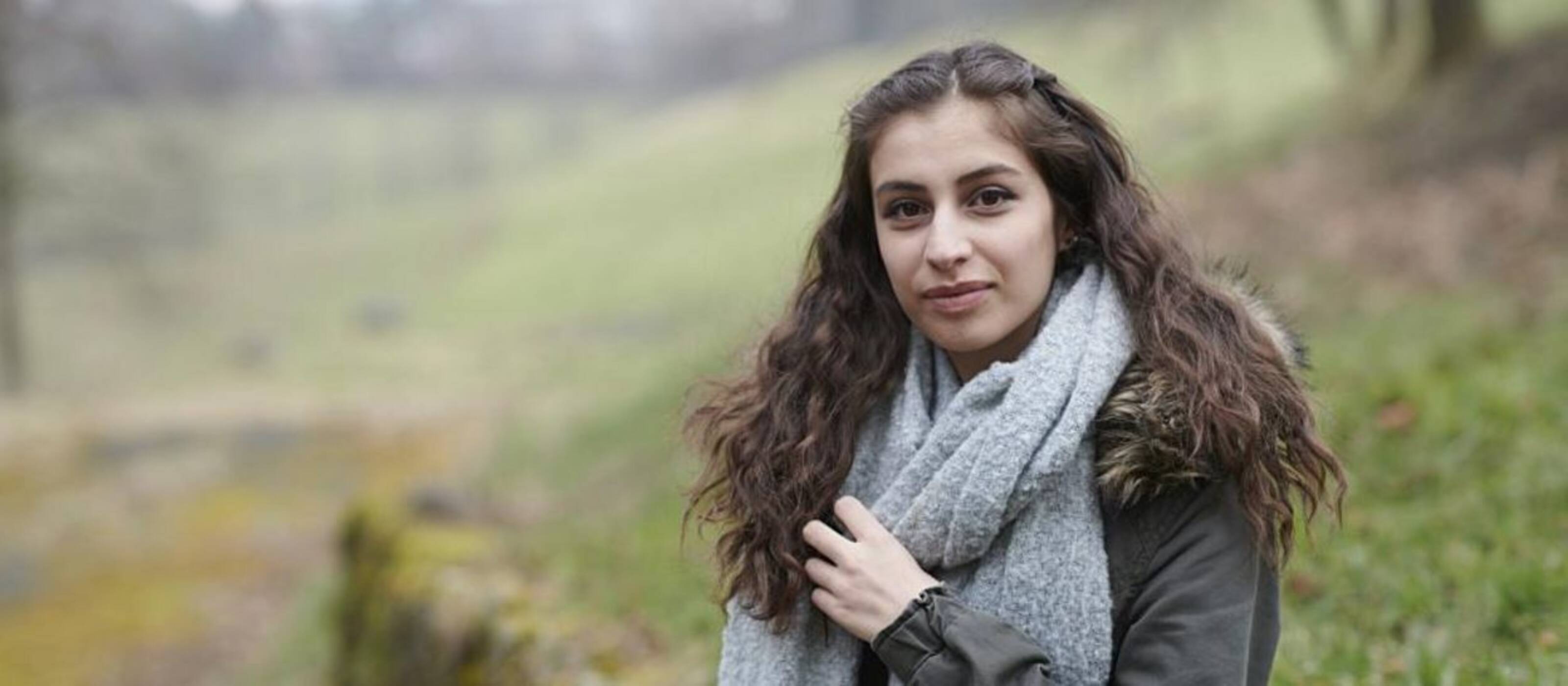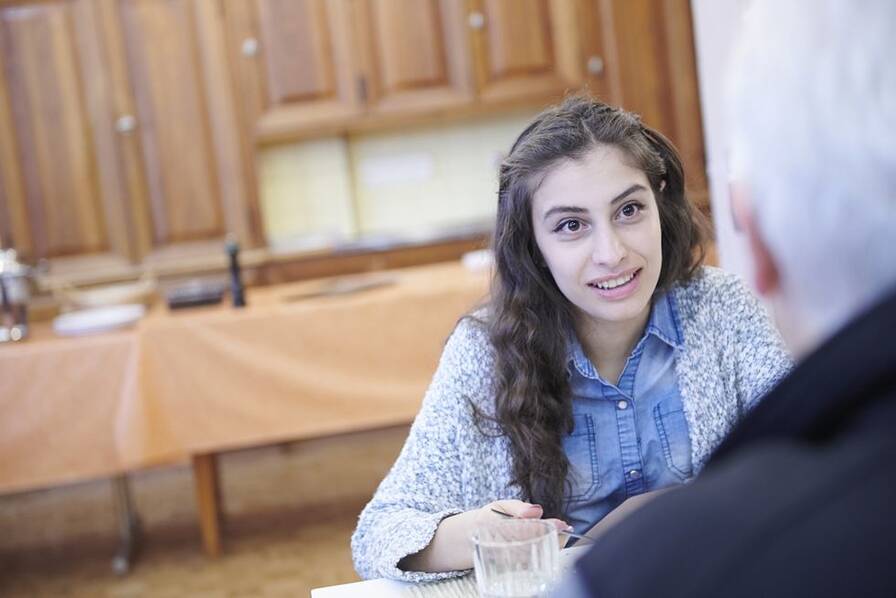

Admirable perseverance of young refugees in Switzerland
Integration happens through work. But how do you find a job when you arrive in Switzerland at 16, having fled violence and lost family members? Such a history leaves deep traces. In the canton of Fribourg, Caritas Switzerland helps young people from Syria, Eritrea, Iraq or Afghanistan to catch up in school and language skills and to find an apprenticeship. Courses are held, internships are organized and partnerships with companies are entered into. With success.
«It's not easy,» says Aman*, 25. He needs some support in his search for a professional internship. He uses tutoring at Caritas Switzerland in Fribourg to ask his teacher for advice. There are five of them in the classroom, four young men and one young woman between 18 and 25, all from Eritrea. Today they have math class. But the teacher, a community service worker, also helps them with other tasks.
The young people are persistent and eager to learn. Immediately after their course at Caritas, they go to the Gewerbliche und Industrielle Berufsfachschule Freiburg (GIBS), where they take further math, French or geography courses. They know: To hope for an apprenticeship, they must reach the level equivalent to completing compulsory education in Switzerland.
French classes
For those who have only been in Switzerland for a few months, it is still too early to attend courses at GIBS. In Matran, where Caritas Switzerland opened a House of Education and Integration in March 2018, courses are therefore offered in which the young people acquire the necessary level. From Monday to Thursday, Aimé Dali teaches French and math to 16- to 24-year-olds. "Our first priority is unaccompanied minors," says the teacher. "The problem is that they often haven't learned to learn. They first need to understand how to acquire knowledge."
There is an eager learning mood, French is still halting and levels vary widely. Young men are in the majority. Of all the refugees between the ages of 16 and 25 that Caritas Switzerland serves, only a third are female.
Her passion is pharmacy
Lava Khalil has successfully mastered the difficult task of learning French. Now 21, she was in her second year at high school when, from one day to the next, she had to leave everything behind as war came to her Kurdish village in Syria. «We left everything behind, took nothing with us,» says the young woman, who fled with her parents, brothers and sister. «We fled across the Turkish border to Istanbul, where we stayed for seven months.» Studying was not an option there; the whole family had to work to survive. In 2014, they finally manage to get to Switzerland.
«It wasn't easy at the beginning, especially for my parents,» Lava says. In Syria, her father worked for an oil company and her mother was a teacher. Lava and her family are accompanied by Caritas and live in Romont. They have been recognized as refugees. «It's easier since we know French. Our neighbors have become our friends,» Lava says happily.
«In Syria, I wanted to study pharmacy at university,» she continues. Her enthusiasm made her look for an apprenticeship in this industry on her own with great naturalness. After a three-day internship at a pharmacy in Matran, Lava was selected. «I really enjoyed the internship,» Lava enthuses. The contract has been signed: In August, she will start her apprenticeship as a pharmacy assistant.
«In a few years, I might be a pharmacist, have children,» Lava envisions. «But the most important thing is that I have my family and can be with them.»

Further information
Header image: © Fabian Biasio